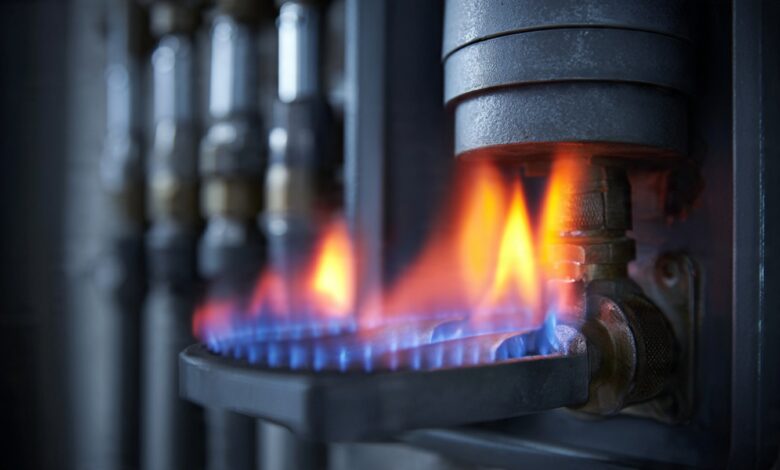Efficient Heating Oil Use for Lower Energy Bills
Discover smart ways to save on heating oil. Learn how to boost energy efficiency, cut costs, and stay warm while protecting your budget and the environment.

Keeping your home warm in colder months doesn’t have to mean high energy bills or unnecessary fuel waste. With rising prices and environmental concerns, maximizing the efficiency of your heating oil usage is not just smart, but it’s essential. Whether you are a longtime user or exploring cash heating oil for the first time, there are a range of practical strategies you can adopt to get the most from every delivery while protecting your budget and the environment.
Energy efficiency starts with knowing where and how to optimize. This guide offers practical tips to help homeowners and renters reduce their heating oil consumption without compromising warmth or comfort. Implementing even a few of these strategies can yield significant benefits through reduced costs and increased system longevity.
Regular Maintenance of Heating Systems
Scheduling annual maintenance for your heating system is a fundamental step in maximizing efficiency. Over time, dust, soot, and debris can accumulate, hindering the operation of essential components and forcing your boiler or furnace to work harder. Tasks such as replacing or cleaning filters, checking for leaks, and calibrating the system ensure it runs optimally throughout the heating season.
Professional inspections also address issues before they become costly repairs or cause mid-winter breakdowns. According to the U.S. Environmental Protection Agency (EPA), regularly serviced heating systems experience improved fuel efficiency and longer lifespans, delivering comfort without surplus energy use.
Utilizing Programmable Thermostats
Effective temperature management is a significant factor in reducing heating oil consumption. Programmable thermostats empower you to automate adjustments based on your daily routine, lowering the temperature when the household is empty or occupants are asleep. Even dropping the thermostat by a few degrees during these times can translate into substantial savings over the season.
As noted by the U.S. Department of Energy, properly using a programmable thermostat can cut energy costs by up to 10% annually. Modern smart thermostats offer further savings with app-based controls, adaptive learning features, and reminders for filter changes or system checks.
Sealing Air Leaks and Enhancing Insulation
One of the most effective ways to prevent heat loss is to seal air leaks and enhance your home’s insulation. Even the most efficient heating system can’t overcome the waste generated by drafty windows, doors, and poorly insulated walls or attics. Easy upgrades, such as weather-stripping, insulating doors, or adding attic batts, can result in improved heat retention and reduced system strain.
Reports highlight that proper insulation and draft-proofing can potentially decrease heating costs by up to 20%, while also making your living space more comfortable during extreme weather changes.
Upgrading to High-Efficiency Equipment
For those with older heating systems, upgrading to high-efficiency equipment may involve a larger upfront investment, but the long-term savings are substantial. Newer boiler and furnace models can operate at much higher efficiency ratings, using less fuel to achieve the same level of heating. High-efficiency systems typically feature advanced burner technology, better heat exchangers, and improved controls for more consistent and responsive warmth.
The difference is notable; ENERGY STAR-certified oil furnaces, for example, are up to 4% more energy-efficient than baseline models and can save approximately $70 in annual energy costs. This upgrade is one of the most impactful moves a homeowner can make, provided it aligns with their budget and timing.
Monitoring Oil Consumption
Knowing how much heating oil you use over the course of the winter helps identify patterns and potential areas for waste reduction. Regularly checking tank levels and tracking refill intervals ensures you don’t run out unexpectedly, which can strain your system and create costly emergency delivery situations. Homeowners can opt for manual checks or install smart oil gauges that track usage in real time, send low-level alerts, and help detect system inefficiencies.
Monitoring your usage will also help you spot any irregularities that could be signs of a leak or malfunction, prompting timely intervention.
Adopting Smart Heating Habits
Behavioral changes can make a surprisingly big difference in annual fuel costs. Simple actions, such as wearing cozy layers inside to allow for a slightly cooler thermostat setting, maximizing sunlight through open curtains during the day, and closing curtains or blinds after sunset to retain warmth, add up over time. Ensuring radiators or vents remain unobstructed by furniture and cleaning them regularly enables more even airflow and heat distribution.
Sticking to a consistent heating schedule and reducing temperatures in unused rooms are other habits that promote efficient oil use without sacrificing comfort.











